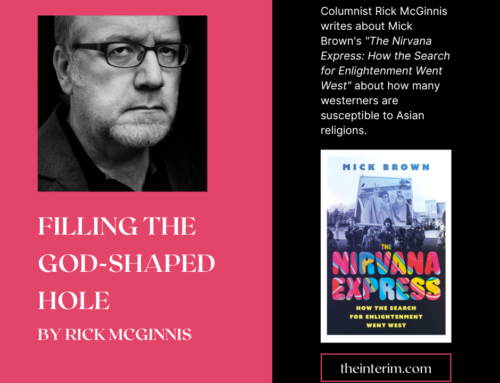 I was sitting on a midway ride recently, waiting for the lights to start flashing and the machinery to start hurling us around when I realized that my life might not actually get better than this moment. I was with my family, near the end of a lovely day at the end of our summer vacation, and it felt like a line was drawing itself around the moment to tell me that this might be the apex from which my life will doubtless crest downward till it ends.
I was sitting on a midway ride recently, waiting for the lights to start flashing and the machinery to start hurling us around when I realized that my life might not actually get better than this moment. I was with my family, near the end of a lovely day at the end of our summer vacation, and it felt like a line was drawing itself around the moment to tell me that this might be the apex from which my life will doubtless crest downward till it ends.
Richard Linklater’s critically-lauded Boyhood is an exercise in stunt filmmaking that actually achieves, without special effects or a massive budget, that sense of time passing and life actually happening that other films fail at signally. Linklater, director of films like Slacker and School of Rock, cast a six-year-old boy in 2002 to play the film’s main character, Mason, who he followed annually until the boy began college.
We meet Mason and his older sister just after their parents’ marriage has broken up. Dad (Ethan Hawke) is in Alaska while their mother (Patricia Arquette) is struggling with money and her own academic ambitions. Over the next few years they move so their mother can go back to school while dad returns, eager to maintain his bond with his children while seemingly unable to grow up as quickly as they do, riding back into their lives in the Pontiac GTO muscle car that signifies his own increasingly threadbare youth.
As Mason, Ellar Coltrane is a gift for the filmmaker – a placid, thoughtful boy who grows into an elegant, reflective young man. He’s the calm at the eye of the storm around him, set in motion by his more confrontational sister, his father’s unsteady grip on the reins of maturity, and his mother’s poor choices in men.
Eager to reconstitute a family, Mason’s mom first marries her university professor and blends her family with his, then an earnest Iraq war vet she meets when she becomes a professor herself. Both men turn into bitter, sullen alcoholics, but while the former man’s rages make for the film’s most conventionally dramatic moments, the latter is shed off-camera without much apparent trouble.
While still praising the film, some critics have said that Coltrane’s performance as Mason is so cool and passive that the film might have been better called Adulthood or – even more politically touchy these days – Manhood, as it’s mostly the gallery of adult males around Mason who make for the really compelling or revelatory glimpses of life in the film’s nearly three hour length.
When we first see him, Hawke’s absent father re-launches himself into his kids’ lives as the stereotypical “fun dad” we see in parks, sports arenas and malls everywhere – hyper and keen on being the best buddy they’ll ever have if only on alternating weekends. As his son gets older, he grasps the nettles of maturity slowly, swapping the GTO for a minivan when he remarries and starts a new family.
Arquette as Mason’s mom has a more troubling journey; we never really know why the men she chooses turn from reasonable to wretched, but the effort of raising her children essentially alone has left her feeling spent by the time Mason is packing up to go to college, and in a heartbreaking final scene she tearfully wonders how much of her is left after launching her kids into the world. At the same moment, Mason’s dad wonders that it took him so long to become the man his wife wanted him to be so long ago, the one who would have been able to keep his family intact.
Like most children of divorce, Mason and his sister wish that their parents would get back together, and balk at their mother’s attempts to build a new family when, as far as they’re concerned, they already had one. And so once again a film populated with liberal characters, created from a very liberal sensibility, ends up confirming a deeply conservative tenet simply because you can’t argue with emotional facts.
The film ends with Mason on his own, away from his family for the first time, mildly stoned as he sits in the desert just outside his college campus with his new roommate and – it is implied – his next girlfriend. Under the influence but also on the verge of the vast and precarious balance of his life, he seems only a bit overwhelmed by it all.
And so the boy becomes the man, and while Mason’s placidity unsettled a few critics, it felt appropriate to me, decades of experience having taught me that, as crucial as the events of my first two decades might have felt, the subsequent three were far more momentous. The wonder is that Linklater has spent twelve years making a three-hour film that, at the end of it all, arrives at a beginning.




